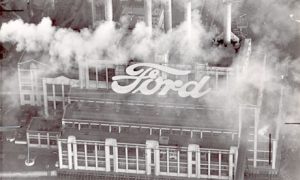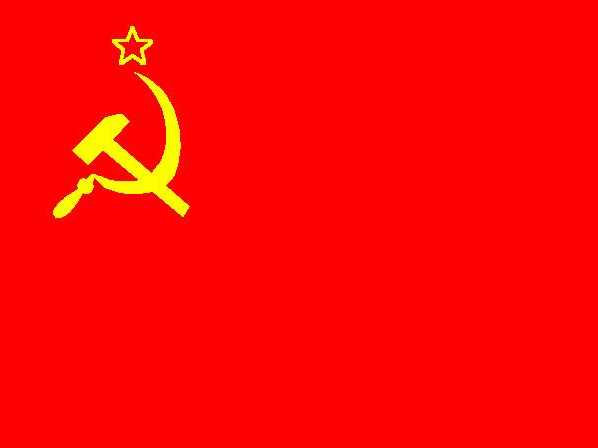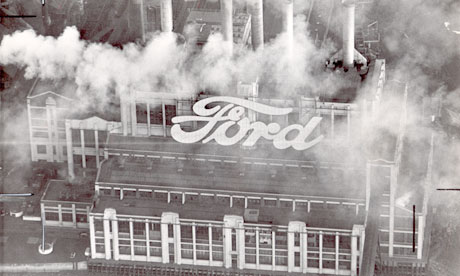6 Year Old Piano Prodigy
Lee Iaccoca: Make Sure You Understand the Entire Business
 When Iacocca started at the Ford Motor Company, he, along with other new engineers, were given a graduate scheme rotation of Ford’s numerous stages of operation. Over a period of 9 months they saw River Rouge Plant, which was the largest manufacturing site every built at the time, from every stage of the manufacturing process. Lee worked in the coal and lime stone mines, which were used to turn steel into cars. The jobbing foundry, which produces a single casting of a steel pattern, the production foundry, the ore boats, the tool and die shops, the testing track, forging plant and of course the assembly line at River Rouge. The River Rouge plant, according to Iacocca, was the pride of Ford and many competing car companies made their pilgrimages to Detroit and Dearborn in order to see how it was done first hand. One important early lesson was that new engineers were to be treated with distrust (or even as spies) by the union workers. These college-educated neophytes were not to be trusted by the work horses within the company.
When Iacocca started at the Ford Motor Company, he, along with other new engineers, were given a graduate scheme rotation of Ford’s numerous stages of operation. Over a period of 9 months they saw River Rouge Plant, which was the largest manufacturing site every built at the time, from every stage of the manufacturing process. Lee worked in the coal and lime stone mines, which were used to turn steel into cars. The jobbing foundry, which produces a single casting of a steel pattern, the production foundry, the ore boats, the tool and die shops, the testing track, forging plant and of course the assembly line at River Rouge. The River Rouge plant, according to Iacocca, was the pride of Ford and many competing car companies made their pilgrimages to Detroit and Dearborn in order to see how it was done first hand. One important early lesson was that new engineers were to be treated with distrust (or even as spies) by the union workers. These college-educated neophytes were not to be trusted by the work horses within the company.
 Vertical integration was the approach taken to develop Ford Motor Company and the River Rouge Plant. By definition, vertical integration gives Ford complete control and complete ownership of every aspect of production from the resources to managing the waste. Vertical integration is the antithesis of the modern global auto-manufacturing that sources parts from the most cost effective source. At Ford, it was about saving money because free-trade was not widely accepted. Even the brown gas created in the coke ovens was redirected and condensed to create a light oil which was used in dealerships, the substance was called Benzoil. The iron was put in a molten state in order to create one solid engine block. Every scrap of wood, rubber or metal would be used. Waste from dust in the grinding wheels is reconstituted. Saving a few seconds at one point in the production can be used subsequently in the production process.
Vertical integration was the approach taken to develop Ford Motor Company and the River Rouge Plant. By definition, vertical integration gives Ford complete control and complete ownership of every aspect of production from the resources to managing the waste. Vertical integration is the antithesis of the modern global auto-manufacturing that sources parts from the most cost effective source. At Ford, it was about saving money because free-trade was not widely accepted. Even the brown gas created in the coke ovens was redirected and condensed to create a light oil which was used in dealerships, the substance was called Benzoil. The iron was put in a molten state in order to create one solid engine block. Every scrap of wood, rubber or metal would be used. Waste from dust in the grinding wheels is reconstituted. Saving a few seconds at one point in the production can be used subsequently in the production process.
 This is a synopsis & analysis based on Iacocca: An Autobiography and other miscellaneous research sources. Enjoy.
This is a synopsis & analysis based on Iacocca: An Autobiography and other miscellaneous research sources. Enjoy.
Margaret Thatcher on the USSR Obsession & Gorbachev
 On the USSR
On the USSR
There are two schools of Sovietology: 1) who plays down the differences between Soviet and Western systems and who generally drawn from political analysis and systems analysis. These people looked at the Soviet Union in terms understood only by liberal democracies. These academics were optimists: confident of rationality. 2) On the other hand there were the historians who grasped that totalitarian systems are different in kind, not just degree, from liberal democracies and that approaches relevant to the one are irrelevant to the other. Thatcher clearly supported the second view. Russians treated well their political elite and foreign dignitaries while their common people starved in the streets. Britain boycotted the 1980 Olympic games although many British athletes attended regardless. The USSR is terrifying for Thatcher. In 1983, relations were more chilly: the USSR had shot down a South Korean airliner killing 269 passengers, Soviets wanted a ‘nuclear free-zone’ in Europe to divide Western powers against themselves, Reagan was announcing the Strategic Defence Initiative.
The capitalist and communist systems were incompatible. Thatcher endeavoured to understand the Soviet system of economics, justice and society. Thatcher disapproved of the handling of the Refusniks; the human rights record of the Soviet Union was appalling. She hated the destruction of the human spirit which she felt occurred in that system of government. Gorbachev was someone Thatcher actively sought out to find common ground. Andropov was the leader of the USSR at this time. Gorbachev was the most well educated. Thatcher visited Hungary, to see how their economy was liberalizing under Soviet influence. She saw some mild signs of pro-free-market progress but they were limited at best. She noted that the economic experiment was conducted under limited parameters. Andropov passed away and Thatcher attended his funeral. Chernenko became the leader.
Gorbachev visited England and Thatcher. Mrs. Gorbachev’s own family had suffered under the forced collectivization. Gorbachev denied the centralization of economic planning. He explained that decentralization into smaller business models was being implemented. Thatcher felt it was not enough. Thatcher believed that a simplistic redistribution system was not the best way to go about running a society.

